Many businesses do not fully understand CBAM
From 1 January 2026, the Carbon Border Adjustment Mechanism (CBAM) will officially be applied, requiring businesses to purchase CBAM certificates corresponding to the amount of emissions in products exported to the EU.
In that context, many Vietnamese enterprises, especially small and medium enterprises, are still confused about meeting the requirements of transparency of emission data, applying green technology and building a system to measure, report and assess greenhouse gases according to international standards.
Dr. Mac Quoc Anh - Director of the Institute of Economics and Enterprise Development, Vice President and General Secretary of the Hanoi Association of Small and Medium Enterprises, said that the level of preparation of Vietnamese enterprises for the requirements of CBAM is still weak and inconsistent, especially in export industries that are directly affected such as steel, aluminum, cement and fertilizer. One of the major bottlenecks is the very limited capacity to measure and report emissions according to international standards.
A 2024 survey by the Ministry of Industry and Trade showed that only about 15% of enterprises in the steel and cement industries currently have a reliable carbon emission measurement system. The proportion of enterprises in the aluminum and fertilizer industries that do not clearly understand the specific requirements of CBAM is up to nearly 70%. Notably, more than 90% of small and medium-sized enterprises in related industries still do not have a plan to transform technology or build a green supply chain.
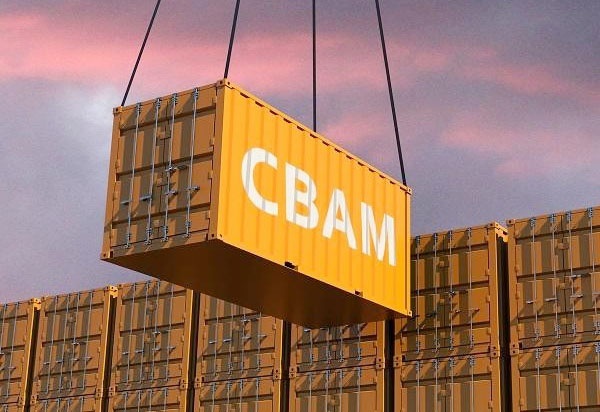
Nearly 70% of aluminum and fertilizer enterprises do not clearly understand the specific requirements of CBAM (Source: MOIT).
The rate of investment in energy-saving technology, using environmentally friendly materials or building greenhouse gas emission management systems is still very low.
The main reasons are that businesses lack information and in-depth knowledge about the CBAM mechanism, lack carbon measurement tools that meet international standards, and have difficulty accessing capital sources for green technology innovation, while current support policies are fragmented, unfocused, and not suitable for the capacity of the small and medium-sized enterprise sector.
Why do businesses need to care about CBAM?
Ms. Ho Thi Quyen, Deputy Director of the Ho Chi Minh City Investment and Trade Promotion Center (ITPC), said that CBAM is not only a challenge but also an opportunity for Vietnamese enterprises to improve their competitiveness and meet international standards.
To maintain and expand market share in the EU market, compliance with new regulations such as CBAM is inevitable. This not only requires transparency on carbon emissions during production but also requires businesses to apply clean technology and environmentally friendly production processes.
The online discussion series "Talk GreenBiz - Green Growth Compass" is organized by Dan Tri newspaper in collaboration with the Green Future Fund (under Vingroup Corporation).
The aim of the chain is to contribute to promoting green journeys in daily life, raising community awareness and calling on each individual to take action today to protect the environment for future generations.
The talk show “From CBAM to Carbon Market - New compliance roadmap for Vietnamese enterprises” part of the series “Talk GreenBiz - Green growth compass” will be broadcast on June 23 on Dan Tri newspaper and its social media platforms.
Therefore, the Government needs to have policies to support businesses in the process of improving green export capacity to comply with regulations and increase competitiveness and expand into large markets, especially Europe, Ms. Quyen emphasized.
Mr. Mac Quoc Anh also commented that CBAM is no longer a voluntary environmental trend, but has become a new generation of technical and tariff barriers in international trade.
According to the European Commission, CBAM is designed to prevent “carbon leakage,” which is the relocation of factories to countries with lower environmental standards to avoid domestic carbon taxes. The mechanism is legally and commercially binding.
Specifically, businesses exporting to the EU must submit greenhouse gas emissions reports and purchase CBAM certificates corresponding to the amount of CO₂ generated during the production process. Failure to comply will result in goods being refused entry or subject to high tariffs.
Regarding the speed of implementation, according to data from the General Department of Customs, Vietnam's export turnover to the EU in 2023 will reach more than 47 billion USD, of which steel, aluminum, cement and fertilizer - the products directly affected by CBAM - account for about 8 to 10%. This means that if they do not adapt quickly, Vietnamese businesses will face the risk of losing market share in one of the largest export markets.
Not only limited to Europe, CBAM is also considered an indicator of the global carbon regulation trend. Many countries such as the US, Japan, South Korea, etc. have begun to study similar mechanisms and may apply them within the next three to five years. This shows that this is not just a single regulation of the EU, but the beginning of a new trade order, where carbon becomes a mandatory cost component.
“Businesses cannot see this as a temporary green trend, but as a global standard that must be met if they want to survive and develop sustainably,” Mr. Mac Quoc Anh emphasized.
He also warned that if they fail to meet CBAM requirements in a timely manner, the consequences for Vietnamese businesses will be very serious. First of all, there is the risk of losing the EU market due to the inability to prove the source of emissions or the inability to purchase CBAM certificates as required. This could lead to being excluded from the supply chain, losing orders and long-term contracts.
Second, export costs will increase significantly. In case of trying to maintain the market, businesses will have to bear high carbon taxes, which will erode profits and even risk losses due to not being able to compete on price.
Third is the risk of falling behind in the green and digital transformation process. CBAM is not only an environmental barrier, but also related to traceability and transparency of production data. Enterprises that are slow to adapt will gradually be eliminated from the global supply chain.
Finally, if the number of enterprises that fail to meet CBAM increases, it will directly affect the national reputation. Partners may assess Vietnam as a higher-risk market, thereby reducing the ability to attract foreign direct investment, especially in supporting industries and export-oriented manufacturing.
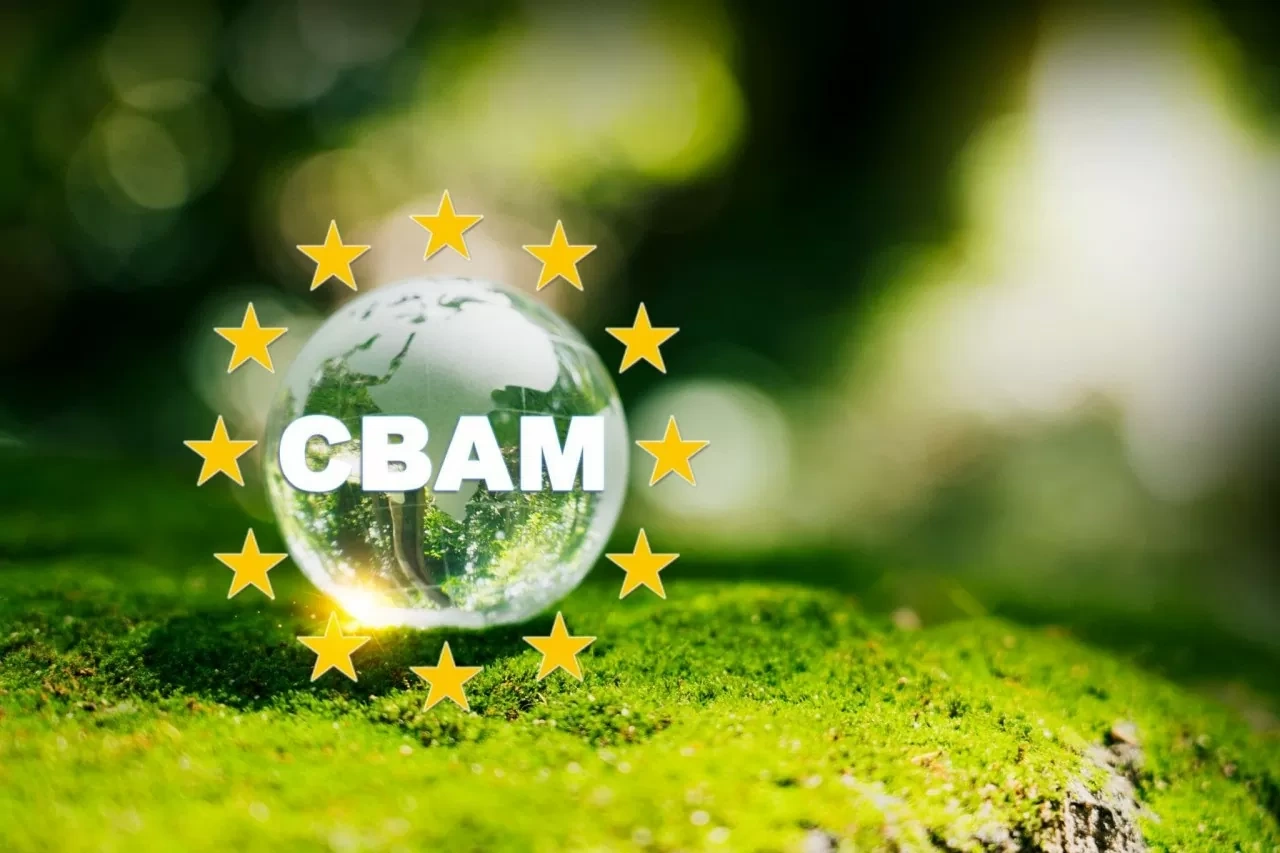
CBAM is a global standard that businesses must meet if they want to survive and develop sustainably (Source: ShutterStock).
Sharing with Dan Tri newspaper reporter, Mr. Bui Manh Toan - Chairman of the Board of Directors and General Director of Vietnox Joint Stock Company - said that the enterprise is facing many big challenges when CBAM takes effect from 2026.
The first challenge comes from the pressure to report and purchase CBAM certificates. Under the new regulations, each ton of CO2 emitted from products exported to the EU must be certified with a CBAM certificate, with a price equivalent to the European Emissions Trading System (EU ETS), about 80 to 100 euros per ton. With a large export scale in the steel and stainless steel industry, Vietnox's additional costs could increase sharply if it cannot control emissions.
Next is the issue of emissions inventory and verification. Enterprises are required to set up a measurement system and apply emissions inventory according to international standards, including two main scopes: Scope 1 and Scope 2. Scope 1 is the amount of emissions directly arising from the enterprise's activities and Scope 2 is the amount of indirect emissions.
Measuring and reporting these two sources of emissions not only helps businesses comply with EU regulations, but is also an important first step towards green transformation and accessing sustainable finance opportunities in the future.

Mr. Bui Manh Toan - Chairman of the Board of Directors and General Director of Vietnox Joint Stock Company (Photo: Vietnox).
In cases where the figures are inaccurate or unverified, the EU will apply the highest price for CBAM certification, increasing unexpected costs.
Export costs will also increase. Each ton of stainless steel exceeding the permitted emission threshold can generate an additional 16 to 20 euros. With an export output of about 10,000 tons per year, the additional costs that Vietnox has to bear can amount to more than 160,000 euros.
In addition, Mr. Toan assessed that competition in the European market has also become more difficult. Although the EVFTA Agreement opens up great opportunities for Vietnamese enterprises, CBAM has invisibly become a "new tax" for high-carbon products such as stainless steel. This makes domestic products less competitive than goods from countries that have effectively greened.
Another risk is related to technology and policy. If the emission measurement system is not regularly audited or does not meet standards, the company may be required to re-declare. This directly affects the delivery schedule and reputation in the international market.
How businesses can overcome CBAM barriers
Faced with the above situation, Mr. Quoc Anh proposed to quickly develop a training program on CBAM awareness at the industry level, and at the same time establish centers to support businesses in measuring and reporting emissions according to international standards.
In addition, the Government also needs to consider designing separate green credit policies for small and medium-sized enterprises in affected export industries.
Sharing experience from a business perspective, a representative of Vietnox said that the company has proactively prepared by investing in upgrading facilities and production technology. One of the first steps is to deploy a waste heat recovery system, increasing the operating efficiency of the furnace and reducing energy consumption by 10 to 15%. From 2024 to 2025, the company has collected emission data to be ready to integrate periodic reporting according to CBAM requirements starting from 2026.
At its two factories in Hanoi and Ho Chi Minh City, the company is investing in automatic electricity and gas measurement systems to accurately inventory energy and emissions. The company has also set up specialized departments such as the ESG department and the material recycling department, responsible for inventorying emissions, classifying scrap and optimizing input materials to limit unnecessary emissions, and training staff...
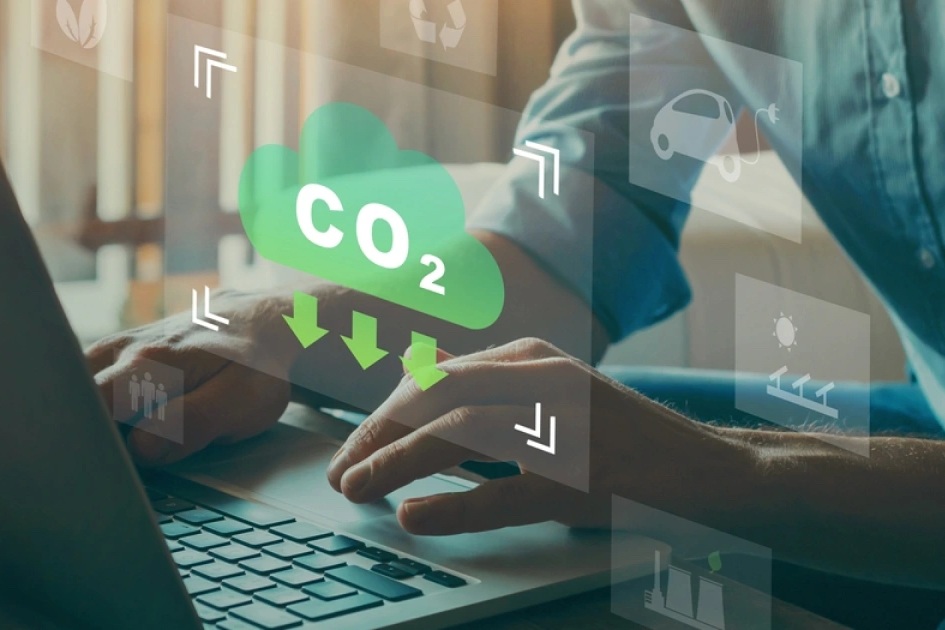
CBAM is a key tool of the European Commission to promote decarbonization (Source: ShutterStock).
Financially, the company sets aside 2% of its annual profits for an internal green fund. This fund is used to purchase CBAM certificates and invest in energy-saving projects and emissions inventories.
Mr. Toan also said that the Government and associations are providing a lot of practical support. Vietnam has now issued regulations on carbon market development, with a pilot phase lasting until the end of 2028 and official operation from 2029. When a business's emission measurement system meets standards, domestic carbon credits can be used to offset part of the CBAM obligation, thereby reducing costs.
At a recent CBAM compliance training conference for businesses, Ms. Nina Miron Claudia, policy specialist of the European Tax and Customs Union Directorate General, emphasized that CBAM is a key tool of the European Commission to promote the decarbonization process.
The mechanism complies with the EU's international policies and legal commitments including compatibility with the World Trade Organization (WTO).
According to Ms. Nina, the European Commission has proposed measures to simplify CBAM, such as introducing a new de minimis threshold of 50 tonnes/importer/year for total imports of iron and steel, aluminum, cement and fertilizers, to reduce the administrative burden for small importers while still ensuring environmental efficiency.
Mr. William L Nolten, Board Member of Rexil Asia - Distributor of biological solutions for the agriculture and aquaculture industry, said that to adapt to the new regulations, businesses need to proactively study the requirements of CBAM, review the entire production process and build a complete and reliable greenhouse gas emission database.
Emission inventory and determination of emission intensity per unit of product is an important step, helping businesses assess the current situation and build an effective roadmap for emission reduction. In particular, solutions such as using renewable energy, improving technology and optimizing operations are considered practical and feasible directions.
The ESG Vietnam Forum 2025 with the theme "Science and technology and driving force for sustainable development" will be a place to exchange and discuss important issues such as: How can businesses apply science and technology to improve the environment and limit negative impacts on the environment?
How can businesses solve social problems such as poverty reduction, improving the quality of education and health care, and creating sustainable employment opportunities? How can science and technology enhance transparency, accountability, and governance efficiency?
The highlight of the Vietnam ESG Forum 2025 will be the Vietnam ESG Awards 2025 - a prestigious title honoring businesses that have made outstanding achievements in implementing ESG in science and technology towards sustainable development.
The organizers of the Vietnam ESG Forum believe that honoring businesses with good execution will inspire and motivate other businesses to act for a better future.
Source: https://dantri.com.vn/kinh-doanh/doanh-nghiep-viet-van-la-lam-voi-cbam-lam-the-nao-de-vuot-qua-rao-can-20250619021514962.htm




![[Photo] Cutting hills to make way for people to travel on route 14E that suffered landslides](https://vphoto.vietnam.vn/thumb/1200x675/vietnam/resource/IMAGE/2025/11/08/1762599969318_ndo_br_thiet-ke-chua-co-ten-2025-11-08t154639923-png.webp)



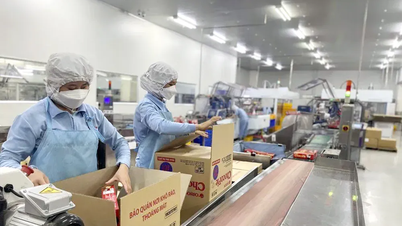

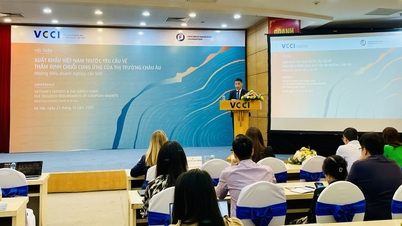

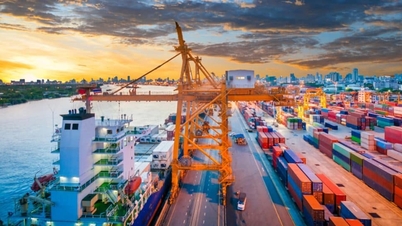

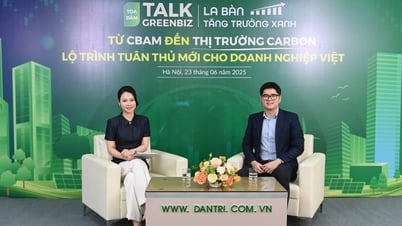
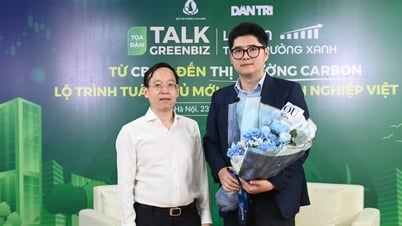



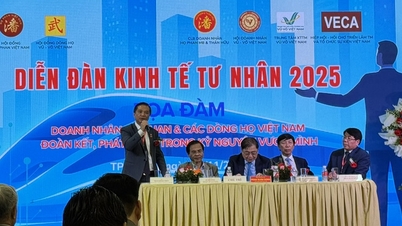



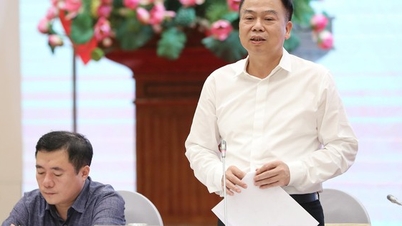








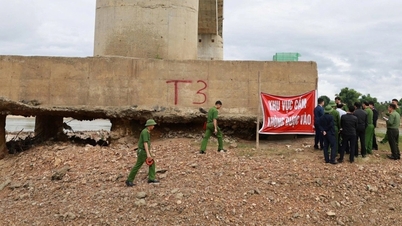









![[Video] Hue Monuments reopen to welcome visitors](https://vphoto.vietnam.vn/thumb/402x226/vietnam/resource/IMAGE/2025/11/05/1762301089171_dung01-05-43-09still013-jpg.webp)





















































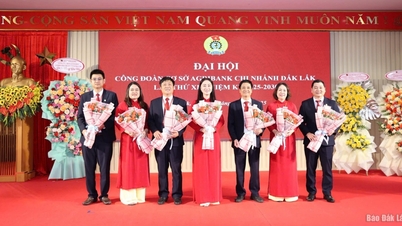













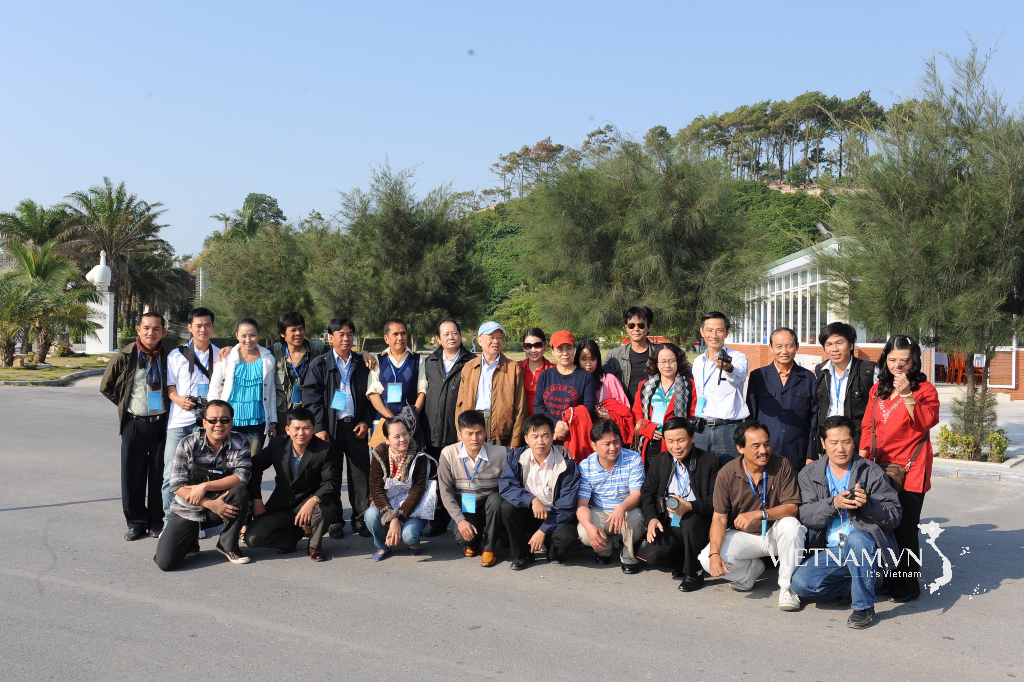

Comment (0)